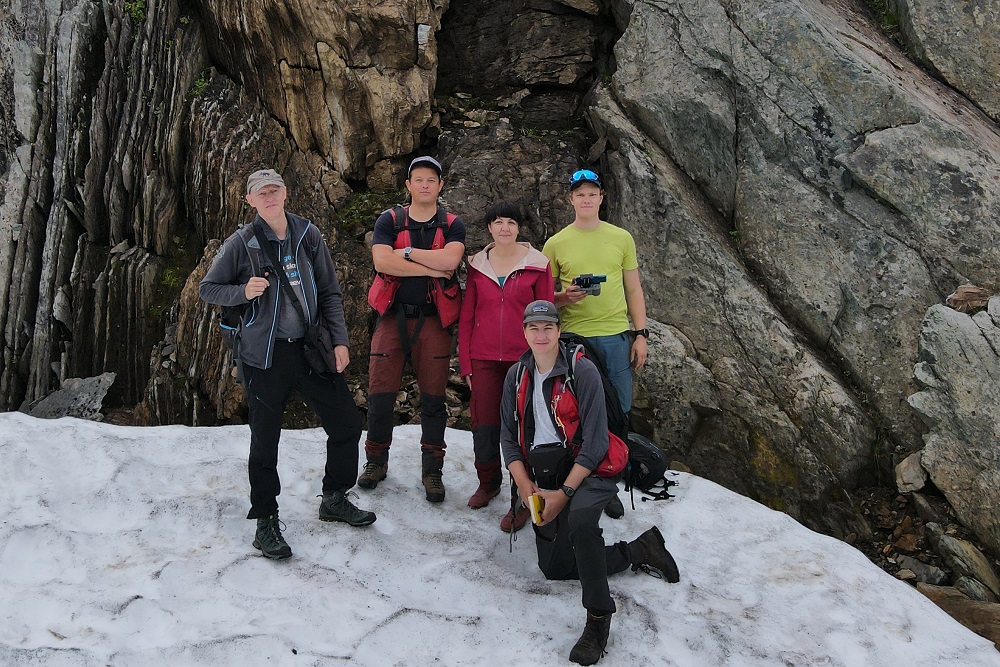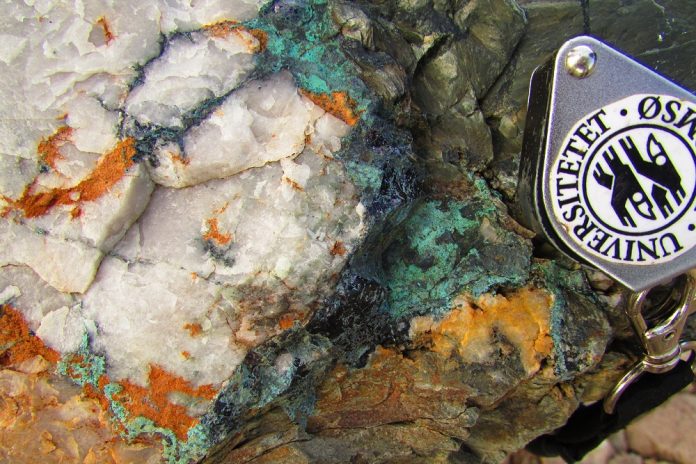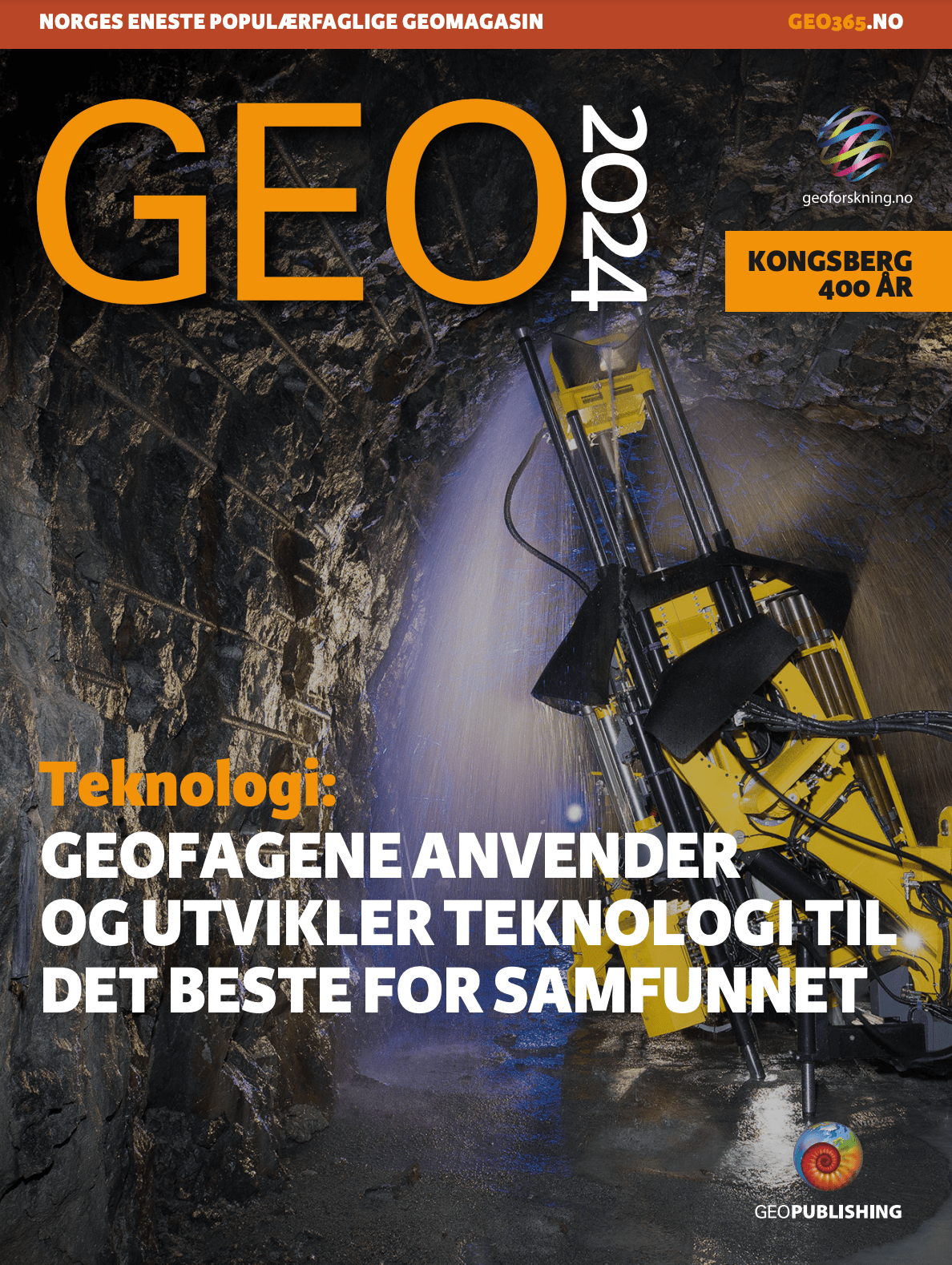The Green Shift is driving the demand for minerals and metals. Some of the Norwegian universities, including UiT, have started to build up relevant competence and develop educational programs.
GREEN MINERALS: Copper mineralization in Northern Norway. Photo: Sabina Strmic Palinkas
Global population growth, technological development, and in particular the Green Shift, i.e. attempts to reduce the CO2 emission by replacing hydrocarbons with renewable sources of energy, exponentially increase global needs for metals.
Due to constant changes in the design of solar, wind, and battery storage systems it is impossible to pin down the exact metal needs in the coming years.
However, there is the consensus among scientists and technology experts saying that demands for copper, cobalt, nickel, manganese, lithium and rare-earth elements will continue to grow and even exceed the known global mineral reserves in the next 50 years.
Supply risk and sustainable development
In addition to the limited global mineral resources, the European economy is facing a challenge of a strong dependency on metals imported from other countries. Thus, it is under constant supply risk.
Also, by “outsourcing” mining activities to other parts of the world, Europe has lost mechanisms to control environmental regulations and prevent child labor in the metal supply chain, including the well-known example of cobalt that comes to European electric cars and cellphones often as a product of child labor in cobalt mines of Democratic Republic of the Congo.
Therefore, the European Union has recognized a strong need to secure the sustainable competitiveness of the European mining sector and established the Raw Materials as an Innovation Community within European Institute of Innovation and Technology (EIT RawMaterials).
EIT RawMaterials supports the sustainable development of the European minerals, metals and materials sector along the entire value chain by driving innovation, education and entrepreneurship. The education of new generations of experts in the mining sector, including mineral exploration, is given a particular focus.
Norway – Fragile, but improving
The Norwegian perspective within the European mining sector is even more fragile. Decades of a strong focus to the oil and gas sector resulted with a limited support to the educational programs relevant for the mineral sector.
However, with the recent demand for the Green Shift, some Norwegian universities have started to build up the relevant competence and develop educational programs that should contribute to education of new generations of experts for future jobs in the mineral sector.
 Photo: Sabina Strmic Palinkas
Photo: Sabina Strmic Palinkas
One of these universities is UiT The Arctic University of Norway.
In addition to other relevant activities, the Department of Geosciences at UiT is strongly involved in the MinExTarget project (Enhanced Use of Heavy Mineral Chemistry in Exploration Targeting) with an aim to develop and implement new exploration techniques and provide better targeting capacities in the early stages of mineral exploration, especially in Fennoscandia.
|
Conference on deep sea minerals
NCS Exploration – Deep Sea Minerals
October 21. – 22.
Bergen (+ digital)
|
In addition to the research and innovation components, the MinExTarget project is also determined to educate new M.Sc. and PhD students.
During the period from June 14th to 18th 2021, the Department of Geosciences at UiT offered an intensive course entitled “Discover the mineral potential of Fennoscandia and Northern Europe: Fingerprinting techniques in mineral exploration” with over 80 participants from more than 20 countries.
During the course, students and early-stage professionals gained knowledge about the geology and mineral potential of Fennoscandia and Northern Europe, and they learned about traditional and modern mineral exploration techniques.
A particular focus was given to sampling, sample preparation, analytical techniques, as well as data processing and data quality control.
The feedback of the participants after the course was extremely positive showing that M.Sc. and PhD students, as well as junior professionals have recognized that the education in mineral exploration provides them with knowledge and skills needed for their future jobs in the European mineral sector.



